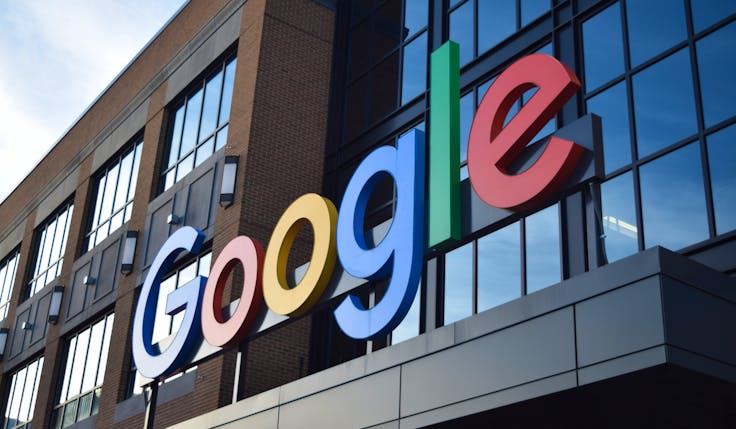AI search, deepfakes, justifying marketing spend: 5 interesting stats to start your week
We arm you with all the numbers you need to tackle the week ahead.

Most businesses unprepared to tackle deepfakes
Deepfakes – fake video or audio impersonating a real person – are becoming increasingly prevalent but most businesses are unprepared to tackle the problem.
Just 20% of marketing leaders say their businesses are updated on deepfake technology and only 17% have social listening or content verification systems in place to combat deepfakes.
More than two-thirds (68%) of marketing executives worry about staff impersonation and false public statements caused by deepfakes yet they don’t have a plan in place to help tackle the potential risk.
Three-quarters (74%) say they are concerned about the potential financial loss deepfake scams such as fraudulent transactions and phishing schemes could cause, yet only 25% have implemented countermeasures.
Karen Tran, principal analyst at Forrester, says: “By priortising deepfake preparedness, building robust response plans, and fostering strong internal partnerships, CMOs can safeguard their brands against this emerging threat.”
Source: Forrester
Quarter of shoppers have bought luxury items from social
 Luxury consumers are increasingly happy to purchase items via social, according to research by WPP, which points to the rise of dedicated content creators.
Luxury consumers are increasingly happy to purchase items via social, according to research by WPP, which points to the rise of dedicated content creators.
Over a quarter (27%) of fashion and beauty shoppers who follow influencers have purchased luxury items directly through platforms like TikTok and Instagram, according to a survey of 2,000 UK consumers conducted by YouGov.
In-depth product reviews (49%) and user-generated content (32%) are among the most effective forms of influencer content.
Micro-influencers are also on the rise. These are influencers whose recommendations feel less like advertising and more like advice from a trusted friend or expert within a specific area of interest. The survey finds 24% of fashion and beauty shoppers who follow influencer recommendations trust micro-influencers.
“This research demonstrates a remarkable shift in luxury consumer behaviour. The accessibility and convenience of social commerce are redefining how shoppers, particularly younger demographics, engage with and acquire high-end fashion and beauty products,” says Rahul Titus, global head of influence at Ogilvy.
Source: WPP
Consumers rely on AI search results 40% of the time
 The rise of AI search engines and generative summaries has transformed traditional search behaviour, delivering answers directly on results pages and removing the need for users to click through to another site.
The rise of AI search engines and generative summaries has transformed traditional search behaviour, delivering answers directly on results pages and removing the need for users to click through to another site.
According to new research from Bain & Company, this has resulted in 80% of consumers now relying on AI-written results for at least 40% of their searches, reducing organic web traffic by 15% to 25%.
The majority (60%) of searches now terminate without users clicking through to another website. Even among those consumers who are sceptical of generative AI, roughly half report that most of their queries are answered directly on the search page without needing to leave the page.
Source: Bain & Company
Half of UK B2B marketers have to justify marketing spend to C-suite each month
 More than half (51%) of UK B2B marketers have to justify marketing spend to C-suite executives every month, according to new research shared exclusively with Marketing Week.
More than half (51%) of UK B2B marketers have to justify marketing spend to C-suite executives every month, according to new research shared exclusively with Marketing Week.
Plus as B2B buying cycles grow longer, 87% of B2B marketers say it’s getting harder to measure the long-term impact of a campaign.
LinkedIn’s ‘B2B ROI Impact’ research, which surveyed more than 250 B2B marketers in the UK, and more than 1,000 respondents across the globe, reveals that marketers face continued pressure to find new ways to prove the impact of their work on company revenue.
Nearly three-quarters (73%) of UK B2B marketers say proving campaign return on investment (ROI) has become more important in the past two years.
The research also shows three key barriers UK B2B marketers are facing when demonstrating ROI – changes in the regulatory environment (39%), integration issues between different data platforms (39%), and the time and resources required to analyse results (37%).
The pressure to justify marketing investment to businesses is becoming a “much more common theme” for B2B marketers, says Tunji Akintokun, head of enterprise solutions, UK and Ireland at LinkedIn, who adds its “not surprising” half of B2B marketers are having to make justifications monthly. Indeed, it “could be more in the future, if budgets continue to be challenged,” he says.
He urges businesses to acknowledge B2B’s “much longer” buying cycles. “It takes longer to be able to justify that ROI,” Akintokun tells Marketing Week.
Source: LinkedIn
Over a quarter of brands have limited or no adoption of GenAI
 More than a quarter (27%) of CMOs say their business has limited or no GenAI adoption.
More than a quarter (27%) of CMOs say their business has limited or no GenAI adoption.
The survey of 418 marketing leaders finds marketing organisations categorised as ‘high-performing’ are integrating GenAI at a faster pace than their peers. High performers are categorised as businesses that are 1.3 times more successful in overachieving year-on-year profit growth margins and able to meet or exceed all their marketing objectives related to customer acquisition, customer retention, and revenue growth from existing customers.
The survey finds that of organisations that have adopted GenAI, 77% have adopted it for creative development tasks. This rises to 84% of high performers. Similarly, 48% of organisations that have adopted GenAI have adopted it for strategy development, rising to 52% of high performers.
Source: Gartner






